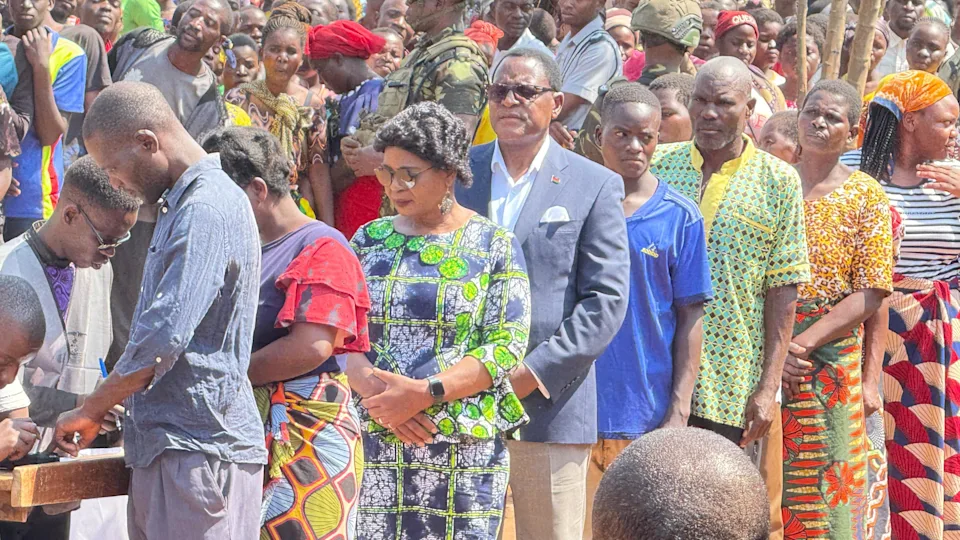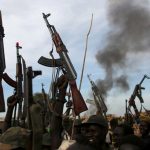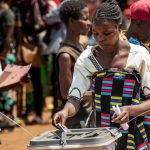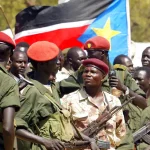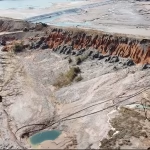Malawi stands at a crossroads as its citizens eagerly await the results of a critical election that could reshape the country’s political and economic future. The vote has drawn intense attention both domestically and internationally, not only because of its potential to alter the nation’s leadership but also due to the severe economic challenges that have gripped Malawi in recent years. With rising inflation, mounting debt, food insecurity, and widespread unemployment, the election is being closely watched as a referendum on the government’s ability to deliver stability and prosperity. For many Malawians, this moment represents more than just a political contest—it is a test of resilience, hope, and the urgent need for solutions in the face of deepening economic struggles.
- The Political Climate and Tense Anticipation
- Malawi’s Economic Woes at the Forefront
- Leadership and Responsibility
- The Human Impact of Economic Struggles
- International Attention and Support
- Electoral Promises and Citizen Expectations
- The Role of Youth and Civil Society
- Possible Scenarios After the Election
- The Global Lens on Malawi’s Democracy
- What Lies Ahead for Malawi
- FAQs
- Why is Malawi facing deep economic struggles?
- What role do international organizations play in Malawi’s economy?
- How are Malawians reacting to the election?
- What are the key issues influencing voter decisions?
- What could happen if the election results are disputed?
- Conclusion
The Political Climate and Tense Anticipation
The atmosphere in Malawi during this election season has been marked by anticipation, anxiety, and an overwhelming sense of uncertainty. Political campaigns have highlighted the nation’s most pressing issues, from corruption and mismanagement to a worsening cost-of-living crisis. Citizens have turned out in large numbers to cast their ballots, demonstrating both civic duty and a desire for meaningful change. Yet as results trickle in, the nation remains on edge, with people gathered around radios, televisions, and smartphones, waiting to see which direction their country will take.
Observers from regional and international organizations have been present to ensure transparency, mindful of Malawi’s history of electoral disputes. The 2019 elections, which were marred by irregularities, had to be annulled by the Constitutional Court, forcing a rerun in 2020. That historic decision set a precedent and reinforced the importance of credibility in the country’s democratic process. This time, many hope that lessons have been learned, but the stakes are higher than ever as Malawi battles economic hardship that cuts across every aspect of daily life.
Malawi’s Economic Woes at the Forefront
At the heart of the election is Malawi’s dire economic situation. The country, often described as one of the poorest in the world, has been grappling with rising inflation, heavy reliance on foreign aid, and a limited industrial base. According to recent economic data, inflation surged past 25% in 2024, with food inflation soaring even higher, making basic commodities unaffordable for millions. The Malawi kwacha has also depreciated significantly, further fueling the cost-of-living crisis and eroding household incomes.
Fuel shortages and rolling blackouts have compounded the situation, creating bottlenecks for businesses and exacerbating unemployment. Agricultural productivity, the backbone of Malawi’s economy, has been severely disrupted by climate change, with erratic rainfall and prolonged droughts devastating maize harvests. Maize, being the staple crop, directly determines food security, and the decline in output has forced the government to seek emergency imports. The result has been widespread hunger, with international organizations warning of increasing malnutrition rates among children.
Leadership and Responsibility
Critics argue that successive governments have failed to put in place sustainable economic policies that could shield the country from such recurring crises. Corruption scandals have also weakened public trust. The current administration, led by President Lazarus Chakwera, has faced mounting criticism for failing to deliver on its promises of reform and prosperity made during the 2020 election. Opposition leaders, meanwhile, have seized on public frustration, offering bold visions of recovery, job creation, and stronger governance.
Dr. Dalitso Kabambe, a former Reserve Bank governor and one of the key opposition figures, has been vocal in presenting alternative economic blueprints that emphasize fiscal discipline and greater private sector participation. However, skeptics question whether any political leader can realistically deliver rapid improvement in the face of structural challenges and heavy dependency on international aid.
The Human Impact of Economic Struggles
Behind the statistics are the real stories of Malawians struggling to survive day by day. In Blantyre’s bustling markets, traders lament how customers can no longer afford even small quantities of food. Farmers in rural districts speak of crop failures that have left them without income or sustenance. In urban centers, young people face bleak job prospects, with many turning to informal work just to get by.
Take, for example, the story of Grace, a single mother of three in Lilongwe, who sells vegetables by the roadside. Despite working from dawn until dusk, her earnings are barely enough to cover food, let alone school fees for her children. She says the election represents her only hope for a government that can stabilize prices and create opportunities. Stories like hers reflect the urgent demand for leadership that listens to the struggles of ordinary citizens.
International Attention and Support
Malawi’s crisis has not gone unnoticed by the global community. The International Monetary Fund (IMF) has stepped in with emergency financing programs aimed at stabilizing the currency and supporting reforms. Donors and development partners have pledged assistance, but these interventions come with stringent conditions that often clash with domestic political realities.
Neighboring countries within the Southern African Development Community (SADC) are also keeping a close eye on Malawi, recognizing that instability could spill over borders. Analysts note that Malawi’s stability is not only a domestic matter but a regional one, affecting trade, migration, and collective security.
Electoral Promises and Citizen Expectations
Election campaigns have been filled with promises ranging from job creation to infrastructure development. Yet voters have grown skeptical after decades of unfulfilled pledges. This time, the demand for accountability is sharper, with civil society groups urging leaders to move beyond rhetoric and deliver concrete action.
Candidates have proposed measures such as diversifying the economy beyond agriculture, improving energy infrastructure, and encouraging investment in mining and tourism. However, translating these proposals into reality will require not just vision but effective governance and fiscal responsibility. For many Malawians, the ultimate question is whether the incoming government will truly prioritize the needs of the people over political gain.
The Role of Youth and Civil Society
Young people, who make up over half of Malawi’s population, have played a crucial role in shaping the election. Disillusioned by high unemployment and lack of opportunity, they are demanding policies that reflect their aspirations. Youth-led movements have been instrumental in mobilizing voter turnout and pushing for transparency. Civil society organizations, meanwhile, are holding leaders accountable, reminding them that the electorate is more informed and engaged than ever before.
Possible Scenarios After the Election
As results are awaited, several possible outcomes loom on the horizon. A clear victory for one candidate could bring a sense of stability, though implementing reforms will be a monumental challenge. A disputed result, on the other hand, could reignite tensions and protests, undermining trust in democratic institutions. Malawi’s recent history of contested elections has heightened these concerns, making the credibility of this vote all the more crucial.
The Global Lens on Malawi’s Democracy
Malawi’s democratic journey has been both inspiring and turbulent. The annulment of the 2019 election was hailed globally as a triumph of judicial independence and citizen activism. Yet democracy is only as strong as the institutions that sustain it. The international community will be watching closely to see whether this election strengthens Malawi’s democratic fabric or exposes deeper fissures.
What Lies Ahead for Malawi
Regardless of who emerges victorious, Malawi faces an uphill battle. Economic recovery will require bold policy decisions, significant investment in agriculture and energy, and stronger anti-corruption measures. At the same time, rebuilding public trust will demand transparent governance and genuine engagement with citizens. For the average Malawian, what matters most is whether life becomes more affordable, jobs become accessible, and opportunities for prosperity become real.
FAQs
Why is Malawi facing deep economic struggles?
Malawi’s economic struggles are driven by a mix of internal and external factors. Inflation, currency depreciation, climate-induced agricultural failures, and dependence on foreign aid have combined to weaken the economy. Corruption and mismanagement have also undermined public confidence in the government’s ability to manage resources effectively.
What role do international organizations play in Malawi’s economy?
Organizations such as the IMF and World Bank provide financial support and technical assistance, helping stabilize the economy during crises. However, their aid often comes with conditions requiring fiscal reforms and accountability, which can be politically challenging to implement. Development partners also contribute through humanitarian aid and long-term development projects.
How are Malawians reacting to the election?
Malawians have shown strong civic participation, with high voter turnout reflecting a desire for change and accountability. While many are hopeful that new leadership could bring relief, there is also skepticism based on past experiences of unfulfilled promises. Citizens are anxiously awaiting results while keeping a close eye on whether the process remains transparent.
What are the key issues influencing voter decisions?
The main issues shaping voter behavior include economic stability, food security, job creation, corruption, and governance. With inflation at record highs and widespread hunger, voters are prioritizing leaders who can provide practical solutions to everyday challenges.
What could happen if the election results are disputed?
If the election results are contested, Malawi risks facing political instability and public unrest. Past elections have shown that disputed outcomes can erode trust in institutions. Observers are urging transparency and fairness to ensure the results are accepted by all parties.
Conclusion
As Malawi awaits the final announcement of election results, the nation finds itself at a pivotal moment in its democratic and economic journey. The vote is not merely about choosing leaders but about charting a path forward in the face of unprecedented challenges. For millions of Malawians, the promise of a better future hinges on the ability of the next government to deliver solutions that address hunger, poverty, and unemployment with urgency and sincerity. The international community will watch closely, but ultimately, it is the people of Malawi who will determine the direction of their country. Whether the election ushers in hope or disappointment, one thing remains clear: Malawi’s resilience and democratic spirit continue to shine, even in the darkest of economic times.

